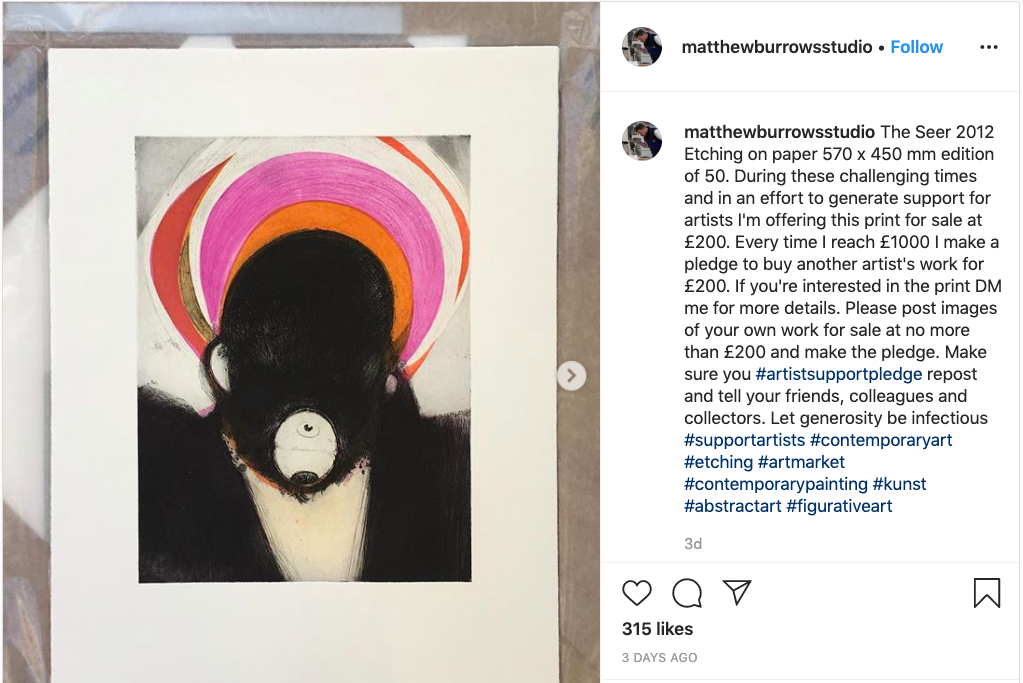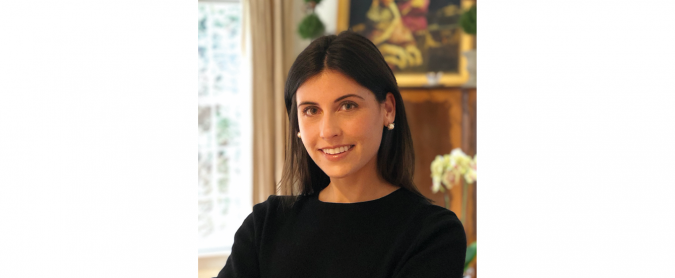When I sat down to write my Master’s dissertation and later, my contribution for the TEFAF Art Market Report, I had one thing in mind: artists. I’ve always believed (and still do) that without artists we would not have an art market and that, consequently, artists should have more of a stake in the art world. But the unfortunate reality is that over time, and as history progresses, the majority of artists and their work have been silently pushed further down the food chain. To combat this, I argue that there needs to be university-based mechanisms in place to give artists that “leg-up” in terms of career preparation and professional survival. Now, with a growing global pandemic at hand, this sentiment is increasingly becoming more important to consider. In this editorial, I re-examine key points of my research on career preparation and incubation models for fine artists through the lens of the Covid-19 pandemic.
In society there is general confusion as to what studying an artistic subject really means. Nigel Carrington, Vice-Chancellor of the University of Arts London, in RA Magazine acknowledged that “the narrative about the instrumental value of a degree in terms of earnings defines outcomes in a very simplistic way”. While the value of education is partly economic, it is mainly valuable in terms of developing an “innovative, informed, democratic, robust, and varied society”. Nevertheless, even with a fine arts degree, artists are subjected to a difficult career trajectory after graduating from art universities. Artistic labor remains largely undervalued and forces artists to take on subsidiary work in areas unrelated to their art in order to maintain an adequate standard of living. This concept of the “hyphenated artist” describes the majority of artists post-graduation. These sentiments were recently echoed by the art logistics company, Dietl, in the wake of Covid-19. In the beginning of April, Dietl launched an online platform to sell works of art by laid-off art technicians. According to the founder of the company, Fritz Dietl, art handlers are often artists subsidizing their practice with income from temporary gigs at fairs, galleries, and museums. In an interview with The Art Newspaper, Dietl stated, “We realized that [artists] are extremely vulnerable in the current economic crisis with absolutely no safety net and no chance for any income in the foreseeable future, but they are the silent, incredibly talented and necessary force behind-the-scenes—the art world, in normal times, simply cannot function without them.”
There are mechanisms in place for students studying subjects such as business, technology, and design to increase their chances of commercial success and professional survival after graduating with a university degree. Over the last decade, universities around the world have become increasingly entrepreneurial along many dimensions especially with the implementation of programs to promote innovation and entrepreneurship. Incubation programs, or simply incubators, are one of such programs that have grown in popularity within the higher education landscape. Incubators support young businesses or entrepreneurs through the early and fragile stages of growth. According to the Department for Business, Energy & Industrial Strategy Report, this support can help early stage businesses and entrepreneurs “avoid the mistakes of others, save time and money, and increase survival rates”. The report asserts that this, in turn, “has consequences for job creation, regional development, innovation, and economic growth”. Interestingly, incubators have not become a key fixture at universities for fine art students. For example, according to Nesta, in Britain, there are 105 registered university-based incubators, primarily at business, technology, and design schools; there are currently no university-based incubator programs offered at art schools for fine art students. Could fine art graduates benefit from utilizing a university-based incubator? Could a university-based incubation program help artists succeed?
As schools across the globe close their campuses and transition to online courses due to Covid-19, many graduate art students are left wondering how they will continue their studies without the studio space, one-on-one critiques, exhibition opportunities, and other hands-on features that are a natural part of a contemporary art education. According to Artforum, more than 100 MFA students at the Yale School of Art are requesting that the university refund part of their semester tuition after the institution closed its studios and facilities. Boston University MFA candidates are also demanding tuition reimbursement arguing that the education being offered online “is not transposable to the programming [students] originally enrolled in—especially in such a short period of time—and students in [their] last semester have lost critical opportunities, such as final reviews of cumulative work and thesis exhibitions”. Boston University is refusing to grant their request. As I read this news, I can’t help but wonder—how is this pandemic going to impact our young artists, their work, network, and career trajectories – and at the most critical part of their development? And how will the “wartime” decision-making of universities reflect back on the institutions in the future?
Considering the plight of universities and the difficult career trajectory artists face, it could be advantageous for such institutions to begin to think strategically and incorporate platforms or mechanisms that will assist their students in mitigating risk post-graduation and increase the likelihood of professional survival. At the same time, implementation of such a program could enhance the image and value of universities moving forward. Further, in order to make a living in the creative arts, fine artists need to operate like entrepreneurs. Consequently, incubators could help artists develop their business skills to attract attention on the market. But what would this incubator configuration look like and how would it work? What are the features and components that would make this successful? And if there are challenges, how would they be overcome? I answer all of these questions, and pose more, in my research (which you can read here).

But for now, I push aside the discussion of trends and innovation in incubator models in reverence to the situation at hand. I feel it is more appropriate to reflect on the importance of artists, their resiliency, and their work at this time. Like artist, Matthew Burrows, who launched a simple pledge to encourage fellow artists to help each other as the art world shuts down. Burrows used Instagram to request artists to post pictures of their work for sale under £200 with the hashtag #ArtistSupportPledge, and each time their sales reach £1,000 they promise to buy another artist’s work for £200. He tells Artnet News that the project “was really in response to the current situation, a creative solution to how I might help myself but also friends and colleagues through this period, by utilizing the generosity of the arts community”. There are over 1,000 posts, which Burrows hopes to translate into 1,000 pledges. “That’s £1 million flowing into the hands of artists,” Burrows stated, “many of whom are in severe financial stress. It’s an ambitious target but easily achievable if people act generously and people get really great art out of this”.
Burrows is just one example of many that suggest we really do have more to learn from artists, especially at times like these.
Julia Valletta is a research-based marketing and communications professional specializing within the art and business sector. Julia has cross-industry experience designing, managing, conducting, and analyzing qualitative and quantitative research as well as developing marketing communications plans and messaging frameworks. She earned a Master’s degree in Art Business with distinction from Sotheby’s Institute of Art and holds a Bachelor’s degree in Communication from Boston University. Julia is currently a Research Assistant at ArtTactic and lives in London.

